International Products Corporation Introduces Micro® A07 Citric Acid Cleaner
Citric Acid Cleaner removes dirt without corroding surface.
May 16, 2008 - NSF-Registered for USDA A1 use, Micro® A07 Citric Acid Cleaner removes oxide, scale, mineral deposits, milkstone, and inorganic soils. Biodegradable blend of chelating citric acid and anionic surfactants has typical pH of 2.5 and zero-VOC, phosphate free, non-corrosive formulation. It carries no hazardous shipping regulations and can be used in CIP, ultrasonic bath, immersion, and mild agitation as well as filter membrane applications.
Burlington, New Jersey, USA: International Products Corporation (IPC) announces the launch of their new Micro® A07 Citric Acid Cleaner for removal of oxide, scale, mineral deposits, milkstone, and inorganic soils. This biodegradable blend of chelating citric acid and anionic surfactants offers enhanced cleaning performance compared to simple citric acids and other citric-based products. With a typical pH of 2.5, Micro A07 is milder than most acids, yet powerful enough to replace more aggressive acid cleaners. Micro A07 is used in CIP, ultrasonic bath, immersion, and mild agitation, and filter membrane applications. This cleaner is zero-VOC, phosphate free, non-corrosive, carries no hazardous shipping regulations, and is NSF-Registered for USDA A1 use.
Micro A07 complements IPC's current line of aqueous cleaners, which includes Micro-90® Concentrated Cleaning Solution a powerful alkaline cleaner for use in manual, ultrasonic, CIP, and low-agitation cleaning applications; LF2100® Liquid Low-Foam Cleaner, a high-performance alkaline cleaner for use in high-agitation washers and spray systems; Surface-Cleanse/930® Concentrated Neutral Cleaner, a nonionic, low-sodium detergent for electronic components and delicate metals; Zymit® Low-Foam Enzyme Cleaner, a neutral pH formulation of enzymes and detergents for removal of starches and proteins; and the newly introduced Zymit® Pro Enzyme Cleaner, a neutral pH formula of protease enzymes, detergents, and builders for removal of protein-based soils.
In addition, IPC manufactures and distributes P-80® Temporary Rubber Assembly Lubricants for improved assembly of low tolerance parts. The water-based lubricants provide safe, temporary lubrication during assembly, and then dry to allow a tight fit. P-80 lubricants are widely use in the automotive, appliance, and pump industries, and are compatible with most elastomers, plastics, and metals.
For more information, contact the manufacturer at 609-386-8770 or visit their website: www.ipcol.com. IPC is an ISO-Certified Company.
martes, 20 de mayo de 2008
NEW CITRIC ACID CLEANER
Suscribirse a:
Enviar comentarios (Atom)
Vistas de página en total
GREEN CHEMICALS
The Green Seal certification is granted by the organization with that name and has a great number of members contributing with the requirements to pass a raw material or a chemical product as "green". Generally for a material to be green, has to comply with a series of characteristics like: near neutral pH, low volatility, non combustible, non toxic to aquatic life, be biodegradable as measured by oxygen demand in accordance with the OECD definition.
Also the materials have to meet with toxicity and health requirements regarding inhalation, dermal and eye contact. There is also a specific list of materials that are prohibited or restricted from formulations, like ozone-depleting compounds and alkylphenol ethoxylates amongst others. Please go to http://www.greenseal.com/ for complete information on their requirements.
For information on current issues regarding green chemicals, see the blog from the Journalist Doris De Guzman, in the ICIS at: http://www.icis.com/blogs/green-chemicals/.
Certification is an important — and confusing — aspect of green cleaning. Third-party certification is available for products that meet standards set by Green Seal, EcoLogo, Energy Star, the Carpet & Rug Institute and others.
Manufacturers can also hire independent labs to determine whether a product is environmentally preferable and then place the manufacturer’s own eco-logo on the product; this is called self-certification. Finally, some manufacturers label a product with words like “sustainable,” “green,” or “earth friendly” without any third-party verification.
“The fact that there is not a single authoritative standard to go by adds to the confusion,” says Steven L. Mack M.Ed., director of buildings and grounds service for Ohio University, Athens, Ohio.
In www.happi.com of June 2008 edition, there is a report of Natural formulating markets that also emphasises the fact that registration of "green formulas" is very confused at present, due to lack of direction and unification of criteria and that some governmental instittion (in my opinion the EPA) should take part in this very important issue.
Also the materials have to meet with toxicity and health requirements regarding inhalation, dermal and eye contact. There is also a specific list of materials that are prohibited or restricted from formulations, like ozone-depleting compounds and alkylphenol ethoxylates amongst others. Please go to http://www.greenseal.com/ for complete information on their requirements.
For information on current issues regarding green chemicals, see the blog from the Journalist Doris De Guzman, in the ICIS at: http://www.icis.com/blogs/green-chemicals/.
Certification is an important — and confusing — aspect of green cleaning. Third-party certification is available for products that meet standards set by Green Seal, EcoLogo, Energy Star, the Carpet & Rug Institute and others.
Manufacturers can also hire independent labs to determine whether a product is environmentally preferable and then place the manufacturer’s own eco-logo on the product; this is called self-certification. Finally, some manufacturers label a product with words like “sustainable,” “green,” or “earth friendly” without any third-party verification.
“The fact that there is not a single authoritative standard to go by adds to the confusion,” says Steven L. Mack M.Ed., director of buildings and grounds service for Ohio University, Athens, Ohio.
In www.happi.com of June 2008 edition, there is a report of Natural formulating markets that also emphasises the fact that registration of "green formulas" is very confused at present, due to lack of direction and unification of criteria and that some governmental instittion (in my opinion the EPA) should take part in this very important issue.













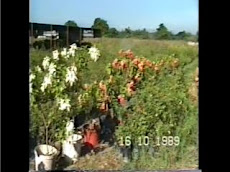
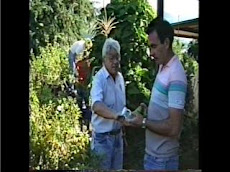













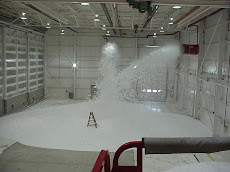
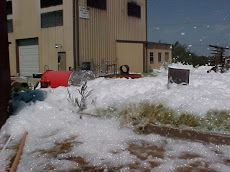

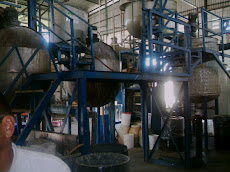








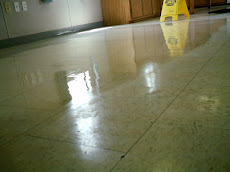








No hay comentarios:
Publicar un comentario